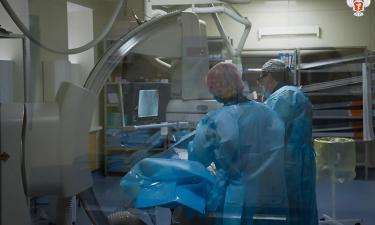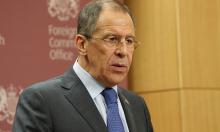Russian Tycoon Granted Political Asylum in Great Britain
Boris Berezovsky has been given all rights of a British citizen
British Home Secretary David Blunkett signed the decree to grant the political asylum to Russian tycoon Boris Berezovsky. The Kommersant newspaper wrote, that British officials told Berezovsky's lawyers the decision had been made after a thorough investigation.
Boris Berezovsky applied for a political asylum in 2002. However, in April of the current year, Home Secretary David Blunkett rejected the application after a London court started to consider Russia's request to extradite the oligarch.
According to the Geneva Convention of 1951, the political refugee status gives Boris Berezovsky an opportunity to live and work in the United Kingdom on a permanent basis and use the state healthcare system services. David Blunkett's decision might have very serious consequences, taking into consideration the coming court session in London regarding Moscow's extradition request (the session is slated to be held October 6).
"Boris Berezovsky and me have the same certificates," - Alexander Litvinenko, another Russian citizen, who has been granted the political asylum in Great Britain, told the Vremya Novostei newspaper. "We call it the "blue document," which implies the lifetime political asylum. Virtually, the document gives us all rights of a British citizen except for two things only: we do not have a right to vote and when we arrive in Great Britain from abroad, we cannot use the "green corridor." The document says, we will be protected by the British government, no matter which country we might stay in."
The fate of the extradition hearings is clear now. The British Home Secretary will have to consider the question concerning further proceedings connected with the Russian oligarch, although the latter may not fear the extradition at this point. According to British law, political refugee status protects Berezovsky against the extradition to Russia.
Boris Berezovsky is safe now, but his protege Akhmed Zakayev is not. The London magistrate court continues consideration of this case pending the request from the Russian Office of the Prosecutor General to extradite the Chechen separatist envoy Akhmed Zakayev. The fourth court session on the case is to take place this week. The meeting will be conducted by judge Timothy Workman. Russia's interests at court will be represented by British lawyers James Lewis and Edward Fitzgerald QC. On Wednesday, the prosecution and the defence questioned Russian Minister for Chechnya Stanislav Ilyasov, Deputy Justice Minister Yury Kalinin and spokesman for Chechnya at the Federation Council, Akhmat Zavgayev. Russia's Deputy Prosecutor General Sergey Fridinsky attends court hearings in London. According to Fridinsky's words, "the trial is being conducted normally," ITAR TASS reported.
Boris Berezovsky claims the British Home Office's decision is connected to the assassination attempt against him by the Russian government. In an interview to Ekho of Moscow radio, the oligarch said it was a crime that Russian special services had tried to commit. Berezovsky stated he knew the organizers' names, although he refused to reveal them.
Berezovsky also thinks the British government decided Russia's arguments to extradite the oligarch were senseless. Earlier, head of Berezovsky's Civil Liberties Fund, Alexander Goldfarb said Boris Berezovsky had been threatened on many occasions.
Subscribe to Pravda.Ru Telegram channel, Facebook, RSS!





